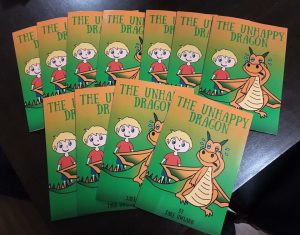Teaching Children to Become Critical Readers
Jake Uwland writes about developing critical readers from a young age
Each and every day people are engaging with newspapers, magazines, books, Facebook, Twitter and endless other types of media and social media.
In doing this, most people are actively engaged as critical readers but do they actually know or understand what it means to be a critical reader?
So…what is a critical reader?
A critical reader is generally not something you one day wake up and become. It is a skill that is taught from an early age and a skill that teachers actively try to develop within their students of all ages. It is a reading skill that is constantly developing each and every time you read and one that does not strictly develop age appropriately.
Research conducted by authors and researchers, Robert Fisher and Mary Williams in Unlocking Literacy – A Guide for Teachers states that children who are critical readers are able to “recreate and respond to texts and also use them for their own creative purposes. Critical readers interpret what they read, read between and beyond the lines and are able to question and develop their own ideas about what they have read.”
Factors such as a reader’s personal experiences, reading ability and their enjoyment of reading will influence someone’s critical reading skills but are not indicative of it.
In my prep classroom I use picture story books, YouTube, reading based apps on ipads and internet based website programs as teaching and learning tools to support my students to become critical readers and to allow them to practise examining and understanding what they have read. Most young children love listening to a story and letting their imagination run wild, as if they become the characters within the story and feel as if they are a part of it.
The key to developing critical readers as a teacher is engaging students in the text through questioning, retelling and comprehending the text from the students’ perspective. This allows them to analyse and think about what they have read and the messages they have gleaned from the story. Modelled, shared, guided and independent reading all play crucial roles in developing critical readers within any classroom. Effective teachers implement all of these teaching strategies into their program.
In a primary classroom that is developing critical readers, teachers will assist children to:
- create their own questions about the story
- discuss issues/problems that were presented in the text
- retell and summarise a text in the student’s own words
- create an alternative problem or ending to the story
- make connections to other books, their own lives and the world around them (text to text, text to self and text to world connections)
- written responses to a story to allow students to engage with the events in the text
These are by no means the only ways to develop critical readers in the classroom, however all tasks must compel students to actively engage with and think about the text.
Having written my own children’s picture story book called The Unhappy Dragon, I found it important to portray and explore the theme of accepting people and their differences in a situation that is familiar to most children, playing at the playground. Young children learn about social values and emotions through situations that are presented to them in stories and at school, the playground is a central part of their day and where many issues between peers tend to arise. I wanted children to be critical of how the characters treated one another and the impact that the behaviours had on each other.
I have found that in reading and discussing my story with my own class and the other prep classes at my school, our prep students were able to connect with the story and the characters and understand how it would feel if they were left out or made to feel different to their peers.
I have received a lot of positive feedback from parents and colleagues regarding the message that The Unhappy Dragon presents to children and I will continue to use the story as a tool to develop critical readers within my classroom and our junior school.

Jake Uwland, prep teacher, Melbourne, Victoria.
Click here to find out more about teacher and author Jake Uwland.
The Unhappy Dragon can be purchased through Amazon or contacting Jake via Facebook. Don’t forget to ‘like’ his page while you’re there.
